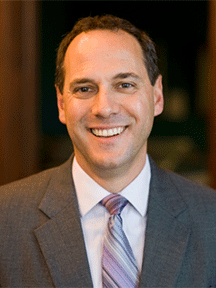By Madeline Vuong
Adam Falk graduated Phi Beta Kappa from the University of North Carolina Chapel Hill and now is engaged in the Williams College chapter of Phi Beta Kappa through his role as president of the college. Throughout Falk’s many years of involvement with Phi Beta Kappa, his views of the organization have changed as his career path altered his perspective.
“At the end of my sophomore year, I was offered a place in Phi Beta Kappa, but I didn’t know anything about the organization. My invitation letter said, ‘You’ll get a pin. The cost is fifty-five dollars.’ But in those days, fifty-five dollars was a lot of money,” Falk said. At the time, Falk was a scholarship student living off a few hundred dollars a month, and fifty-five dollars represented half of a month’s rent. He couldn’t afford to join a mystery organization for that much money.
“So I went back in and told my advisor that I wasn’t going to join because it was fifty-five dollars. The woman seemed really surprised and just kept repeating, ‘I don’t get that.’ Nobody had ever said that to her before,” Falk said. Over the course of the next year though, Falk started to hear more about Phi Beta Kappa. When he was invited the next year to be its vice president, he accepted, working with Phi Beta Kappa until his graduation.
Falk then went on to graduate school at Harvard, studying theoretical high-energy physics, with aspirations of becoming a college professor. After a few years doing research at the Stanford Linear Accelerator Center, he accepted an assistant professorship in physics at Johns Hopkins University.
“I was very happy doing that job. But I think growing up in a non-science home [Falk’s father was a professor of philosophy at UNC] made me interested in things that were going on outside of my department, and I soon became involved in committee work that took me out of just physics and into the school of arts and sciences,” Falk said.
From there, Falk became the Dean of the Faculty at Johns Hopkins and he liked that it allowed him to be involved with all the departments and to work on a much wider set of issues. “I felt that it allowed me to be more deeply engaged with the school and with the student body at large, and I decided within a few years that I wanted to pursue this kind of academic leadership path, which is how I wound up at Williams [as college president].”
At Williams College, Falk came to regard Phi Beta Kappa as more than just an honor society that recognized student achievement—for Falk, it was tied to his interest in involving himself in a larger academic community. “The Williams chapter [of Phi Beta Kappa] has built a community of people who care deeply about intellectual matters here and those intellectual matters cut across different curricula. Phi Beta Kappa helps people find other people for whom academics play a particularly special role…and who want to think and talk about interesting ideas,” Falk said.
Every college supports many different activities and types of achievement, and Williams is no different—academics are not the only institutional priority. However, Falk believes that Phi Beta Kappa has offered a way to reinforce that exceptional scholarship is something to be explicitly celebrated.
“In the role I’m in now, I’m focused on how the ways in which we structure ourselves as an institution support or don’t support the things we believe in. Phi Beta Kappa gives us an opportunity to laud accomplishments that are important to the college. And I think that translates over to the culture of our campus,” Falk said. “When…the Phi Bets are announced at Convocation, the warmth and length of the ovation from the senior class is always very affirming.”
Falk also likes getting The American Scholar in the mail because it keeps him connected to academics not just at his own institution, but nationwide. Of course, Williams alumni and professors occasionally also appear in the publication. “I just picked up this article by Ed McPherson [Williams Class of] ’99 who wrote about his family’s ancestral home in Gettysburg, Penn.,” Falk said. “It was nice to see him in there.”
From declining initially to join Phi Beta Kappa, Falk has come a long way. He now deeply values Phi Beta Kappa because it represents the people who care about making a community dedicated to smart scholarship—the very community he was part of in college, the community he wanted to re-join as a physics professor, and the community he wanted to foster as a college administrator. “I would never have thought about [Phi Beta Kappa] that way at nineteen when I was first asked to join. But Phi Beta Kappa has such a force as a [national] community.”
Madeline Vuong is a senior at Williams College majoring in English and Women’s, Gender, and Sexuality Studies. Williams College is home to the Gamma of Massachusetts Chapter of Phi Beta Kappa.




